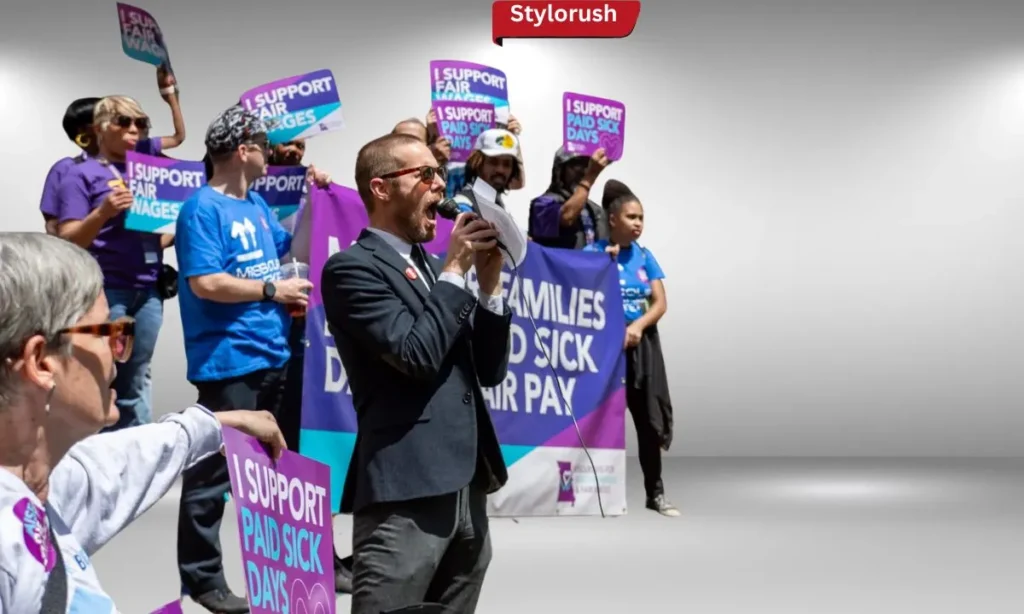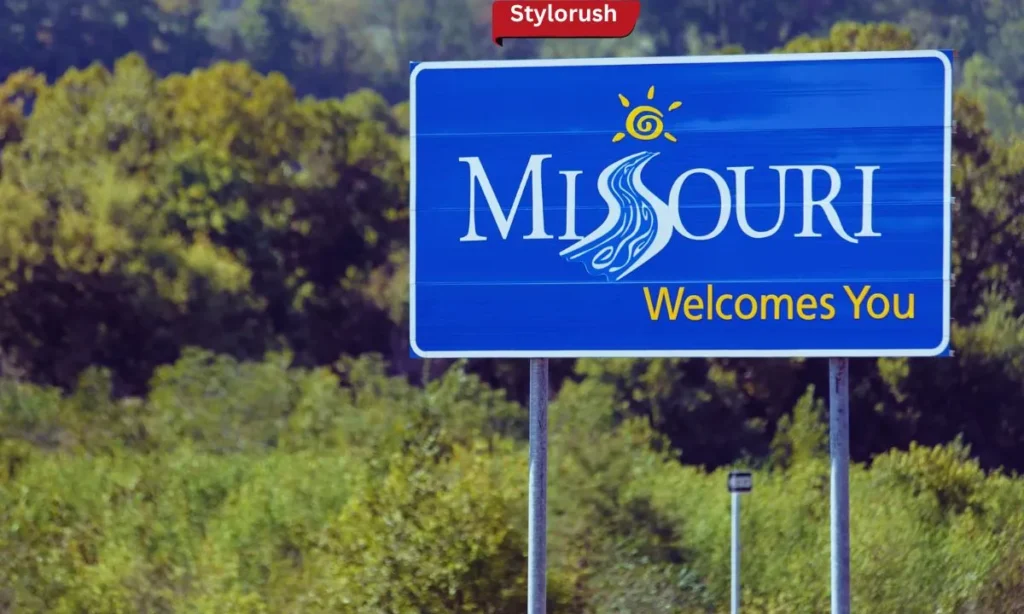Missouri’s Prop A proposes a significant increase in the Missouri minimum wage, raising it to $15 by 2026 while also mandating paid sick leave for workers. This legislation has sparked considerable debate, with supporters arguing it will improve the quality of life for low-wage workers and opponents cautioning about potential job losses and increased operational costs for businesses. In this post, we’ll dive deep into the implications of Proposition A, exploring its potential economic impact, how businesses might respond, and the overall context of the minimum wage in Missouri.
What Changes Would Proposition A Bring?
Proposition A aims to introduce several key changes to Missouri’s wage structure.
Increase of the Minimum Wage to $15
Under Proposition A, the Missouri minimum wage would gradually increase from the current $12.30 to $15.00 per hour by 2026. This increase would occur in annual increments, as detailed below:
| Year | New Minimum Wage |
|---|---|
| 2024 | $13.50 |
| 2025 | $14.25 |
| 2026 | $15.00 |
This structured approach aims to give businesses time to adjust, but the reality is that many employers remain concerned about the financial burden this may impose.
Introduction of Mandatory Paid Sick Leave
In addition to the wage hike, Proposition A includes a sick leave mandate that requires employers to provide one hour of paid sick leave for every 30 hours worked. This sick leave policy aims to protect workers from financial hardship when they need to take time off for illness or medical appointments.
Expected Outcomes for Employees and Families
Supporters of Proposition A argue that this increase will help address the growing cost of living, especially in urban areas like Kansas City. With rising prices for housing, food, and healthcare, many Missouri workers are struggling to make ends meet.
The Demand for Higher Wages and Benefits in Missouri

Current Economic Conditions
As of now, the minimum wage in Missouri does not adequately reflect the living costs faced by many families. According to data from the Massachusetts Institute of Technology, the living wage in Missouri is significantly higher than the current state minimum wage.
Public Support for Higher Wages
Polling data indicates substantial support among Missourians for the proposed changes. For instance, a recent survey revealed that over 60% of voters favor the increase to $15, seeing it as a step toward a more equitable economy.
Testimonials from workers highlight the struggles they face daily:
“I work two jobs just to pay rent. If the minimum wage were higher, I could finally spend more time with my kids.” – Missouri worker
Comparison with Other States
Many neighboring states, such as Illinois and California, have already adopted higher minimum wage policies. This shift raises questions about whether Missouri will be left behind in a competitive labor market.
How Will Missouri Businesses Respond to Higher Minimum Wage and Sick Leave?

Business Owners’ Concerns
Business owners express significant concerns regarding the potential economic impact of Proposition A. Some argue that the increased labor costs may lead to job losses or reduced hiring. The Missouri Chamber of Commerce and Industry warns that small businesses may struggle to absorb these costs, especially in a post-pandemic economy.
Changes in Hiring Practices
As businesses navigate these changes, many may reassess their hiring strategies. For instance, some employers might:
- Reduce the number of hires.
- Increase the use of part-time workers to avoid full-time benefit requirements.
- Turn to automation to offset rising wage costs.
Perspectives from Various Sectors
Different sectors may experience varying degrees of impact. The retail and hospitality industries, which often operate on thin margins, may find it particularly challenging to adjust to the wage increases. Conversely, larger corporations with more financial flexibility might adapt more easily.
Can Small Businesses Afford Proposition A?
Financial Impact on Small vs. Large Businesses
The financial implications of the proposed Missouri minimum wage increase could vary significantly between small and large businesses.
- Small Businesses: Often operate on tighter budgets, making it more difficult to absorb increased labor costs.
- Large Corporations: Generally have more resources to adapt to changes in wage policy.
Case Studies of Small Businesses Adapting to Wage Increases
- Local Coffee Shop: After implementing a $15 minimum wage, a Kansas City coffee shop adjusted its menu prices and implemented a rewards program to retain customers.
- Retail Store: A family-owned retail store adopted automation for checkout processes, which allowed them to maintain staffing levels while managing costs.
Strategies for Small Businesses to Mitigate Costs
Small business owners may consider several strategies to cope with increased wage demands:
- Adjusting Prices: Raising prices slightly to cover labor costs without losing customer loyalty.
- Increasing Efficiency: Streamlining operations to reduce overhead costs.
- Exploring Subsidies: Investigating state and federal subsidies that may help offset increased wages.
Economic Impact on Employment
Economic analysis from organizations like the Economic Policy Institute suggests that while higher wages can lead to job losses in some sectors, they often result in greater overall economic growth. Increased wages tend to lead to higher consumer spending, which can stimulate business growth in other areas.
Missouri Minimum Wage 2024: Current Landscape
Existing Minimum Wage Laws
The current minimum wage in Missouri stands at $12.30, which is above the federal minimum wage of $7.25. However, many argue this amount is not sufficient given the rising cost of living.
Comparisons with Neighboring States
| State | Minimum Wage | Year of Increase |
|---|---|---|
| Missouri | $12.30 | 2023 |
| Kansas | $7.25 | 2008 |
| Illinois | $15.00 | 2025 |
| Arkansas | $11.00 | 2021 |
As shown in the table, Missouri’s minimum wage remains competitive with Kansas but lags behind Illinois. This disparity may compel workers to seek opportunities in states with higher wages.
Predictions for Missouri’s Minimum Wage Trajectory
With Proposition A on the ballot, experts predict that the Missouri minimum wage will see further adjustments beyond 2026 as the cost of living continues to rise.
Understanding Living Wages
According to MIT, the living wage for a single adult in Missouri is approximately $16.77 per hour. This figure illustrates the gap between the proposed minimum wage and the actual living wage required for basic needs. As such, the push for higher wages is not just about making ends meet; it’s about ensuring workers can thrive, not just survive.
The Historical Context of Minimum Wage in Missouri

Overview of Missouri’s Minimum Wage History
Missouri has seen various changes in its minimum wage laws over the years. The Missouri minimum wage has been gradually increasing since 2006, reflecting changing economic conditions and public sentiment.
Key Legislative Changes
- 2015: Missouri implemented its first significant wage increase in years, raising the minimum wage from $7.65 to $8.50.
- 2018: Another incremental increase brought the wage to $8.60.
Each legislative change has often been met with both support from workers and apprehension from business owners regarding job losses.
Historical Responses from the Business Community
Historically, businesses have reacted to minimum wage increases with a mix of adaptation and resistance. In some cases, business owners have raised prices or reduced employee hours, while others have invested in technology to streamline operations.
Broader Economic Implications of Proposition A
Potential Effects on Local Economies
Raising the Missouri minimum wage could lead to various local economic benefits. Higher wages typically result in:
- Increased spending power for families, leading to higher local consumption.
- Reduction in poverty rates, as more workers can afford basic needs.
National Context
Missouri’s situation reflects broader national trends where minimum wage increases are debated across states. Many regions are grappling with the balance between fair wages and the financial viability of businesses.
Future of Wage Policy in Missouri and the United States
Proposition A could set a precedent for future wage legislation. If successful, it may encourage similar movements in neighboring states, potentially reshaping the labor landscape in the Midwest.
The Socioeconomic Debate Surrounding Proposition A
Supporters’ Viewpoints
Proponents of Proposition A, including organizations like Missourians for Healthy Families and Fair Wages, argue that raising the Missouri minimum wage is a moral imperative. They contend that higher wages lead to improved health outcomes, reduced turnover, and a more motivated workforce.
Key Arguments Include:
- Economic Justice: Ensuring that workers can support themselves and their families.
- Public Health: Paid sick leave promotes better health and reduces the spread of illness.
- Economic Growth: Higher wages boost consumer spending, which is essential for a healthy economy.
Opponents’ Concerns
On the other hand, opponents, including groups like the National Federation of Independent Business (NFIB), warn of the negative consequences of such legislation. They argue that:
- Job Losses: Increased costs could lead businesses to cut jobs or reduce hours.
- Higher Prices: Businesses may raise prices to offset increased labor costs, negatively impacting consumers.
- Competitive Disadvantage: Higher wages in Missouri could deter businesses from setting up shop in the state, hurting economic growth.
Frequently asked Questions
Is the Missouri minimum wage going up to $15 an hour?
Yes, Missouri’s minimum wage is set to increase to $15 per hour by 2026 under Proposition A.
Is $15 an hour a livable wage in Missouri?
While $15 an hour is a significant increase, it may still not fully cover living expenses in some areas of the state.
What will the minimum wage be in 2025 in Missouri?
In 2025, the minimum wage in Missouri is scheduled to reach $14.25 per hour as part of the phased increase.
Is 32 hours full time in Missouri?
Typically, 32 hours a week is considered part-time in Missouri, with full-time generally recognized as 40 hours.
Is Missouri a right to work state?
Yes, Missouri is a right-to-work state, meaning employees cannot be forced to join a union or pay union dues.
Is it legal to work 7 days a week without a day off in Missouri?
Yes, employers in Missouri can require employees to work seven days a week, as there are no state laws mandating a day off.
What are the salary rules in Missouri?
Missouri follows federal regulations on salary and wage payments, including rules on minimum wage and overtime.
Do you have to pay overtime in Missouri?
Yes, Missouri law requires employers to pay overtime for hours worked over 40 in a workweek, typically at one and a half times the regular pay.
Is Missouri required to pay holiday pay?
No, Missouri does not mandate holiday pay; it’s up to employers to decide if they offer it.
Is Missouri a final pay state?
Yes, Missouri is a final pay state, meaning employees must receive their last paycheck promptly after leaving a job.
Does Missouri have paid sick leave?
Currently, there is no statewide requirement for paid sick leave in Missouri, although some cities may have their own ordinances.
How long is maternity leave in Missouri?
Maternity leave in Missouri is not federally mandated, but the Family and Medical Leave Act allows for up to 12 weeks of unpaid leave for eligible employees.
Conclusion
Missouri’s Proposition A represents a pivotal moment in the ongoing dialogue about the minimum wage in Missouri. While the potential benefits for workers are clear, the concerns raised by business owners cannot be overlooked. The discussion about raising wages and mandating paid sick leave is complex, involving economic, social, and political dimensions that affect every Missourian.
As the debate continues, it’s essential for all stakeholders—workers, business owners, and policymakers—to engage constructively. Proposition A could lead to transformative changes in Missouri’s labor landscape, but achieving a balance that supports both workers and businesses will be crucial for its success.
Additional Resources
For those interested in further exploring the implications of Proposition A, the following resources provide valuable insights:
- Economic Policy Institute: EPI Minimum Wage Studies
- Missourians for Healthy Families and Fair Wages: Advocacy Group Information
- National Federation of Independent Business: NFIB Insights on Wage Legislation
In conclusion, the future of Missouri’s minimum wage and labor policies is a topic that will continue to evolve. Engaging in informed discussions and advocacy can help shape a fair and sustainable future for all Missourians.
Looking Ahead: Engaging with the Community
As voters consider Proposition A, community engagement is crucial. Local organizations can play a pivotal role in:
- Hosting Town Halls: Provide forums for discussing the implications of wage changes.
- Creating Educational Materials: Help citizens understand the benefits and drawbacks of the proposal.
- Encouraging Dialogue: Foster conversations between workers, business owners, and policymakers to find common ground.
The Path Forward for Missouri Workers
The outcome of Proposition A will have lasting implications for the workforce in Missouri. Regardless of the result, it will undoubtedly prompt continued discussions about fair wages, worker rights, and the economic future of the state. By staying informed and involved, Missouri residents can ensure their voices are heard in shaping the policies that affect their lives and livelihoods.
Through this multifaceted examination of Missouri’s Prop A, we can begin to grasp the potential ramifications of this significant policy change, all while considering the diverse perspectives of those it will impact the most.

Callista
Stylorush.com is a dynamic platform where creative minds come together to explore fashion, beauty, and lifestyle trends. Our authors craft engaging articles that inform, inspire, and captivate readers. Specializing in a variety of topics, they contribute to shaping the ever-evolving world of style and culture, making Stylorush.com a go-to destination for trendsetters.

